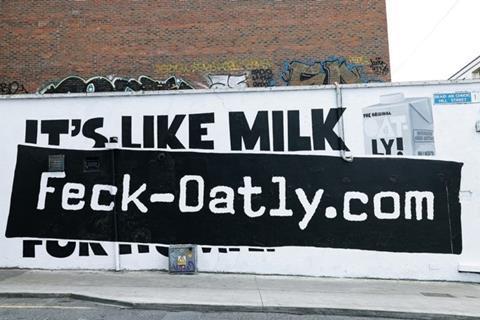
Oatly has launched a website showcasing its recent controversies and marketing “mis-steps”, following a fresh advertising ban by Irish authorities.
The brand had its latest ad campaign, titled ‘It’s Like Milk But Made For Humans’, banned by the Advertising Standards Authority for Ireland as it ruled the phrase ‘But Made for Humans’, implied cows milk was not suitable for human consumption.
The National Dairy Council of Ireland raised three complaints about the outdoor campaign, which ran across Ireland and Northern Ireland in December, with one being upheld by the ASAI.
But in response to the ban, Oatly has started putting up “censored ads” across Dublin and Belfast with its new Feck-Oatly.com URL covering the original tagline.
The oat milk giant is also hosting a comedy “roast” hosted by Frankie McNamara at the Bernard Shaw pub in Dublin, and is challenging local comedians to attend and poke fun at the brand.
Oatly’s most recent ban marks the latest controversial episode in its recent history.
Among controversies listed on the Feck-Oatly website include its decision to accept Blackstone as an investor despite its dubious climate credentials, selling oat residue to pig farms despite Oatly’s vegan status, and the court case it raised against Glebe Farm over copycat branding, which Oatly lost.
The brand also abandoned much-vaunted plans late last year to open its first UK factory in Cambridgeshire, citing how it had “identified new ways to service the UK market that better utilises our existing facilities across Europe”. However, this decision was not included on the website.
Oatly has also partnered with more than 30 coffee shops across Dublin as part of the push, and will give out thousands of free coffee with the words “even if you hate us, we’ll still give you a free coffee”.
“The Feck Oatly campaign is about helping our Irish fans, and haters, get to know Oatly’s punk side and better understand what we’re about as a company,” said Michael Lee, executive creative director for Oatly.
“Creating a website detailing the ‘mis-steps’ we’ve made along the way to creating a more sustainable food system might seem like a risky thing to do, but we see it as an act of transparency because sometimes you have to understand the worst about an oat drink company before you can appreciate the best.”
The brand has not disclosed how much the campaign has cost but has claimed it is one of its biggest in Ireland to date.
In December, Oatly won its appeal in the High Court to use its ‘Post Milk Generation’ trademark on food and drink products.
The dairy alternative giant appealed a decision made in an IPO trademark hearing, initiated by the dairy sector’s main trade association, that had initially banned the use of the phrase. Dairy UK argued that it was unlawful to use the term ‘milk’ in a trademark “in relation to products that are not mammary secretions”.







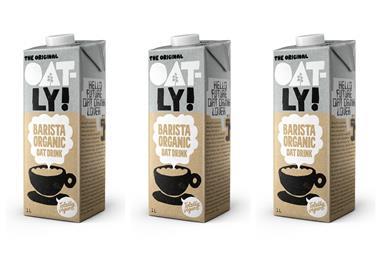
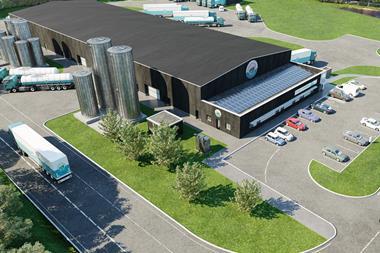
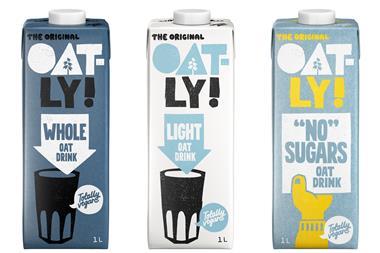
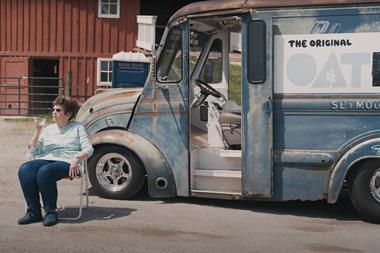
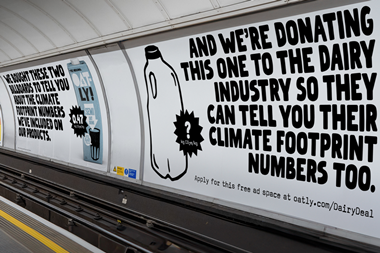
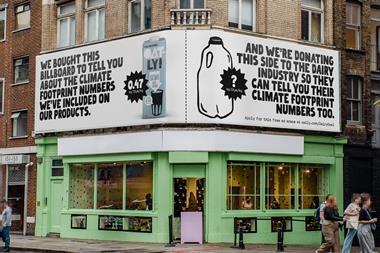






No comments yet